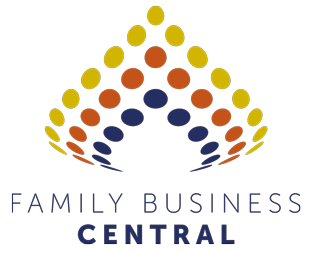
Direction vs Decision: The Differences Between the Family Council and the Board in a Business
In our work with family businesses, there are a lot of issues that families have to get their head around. One that we talk about a lot is the relationship between the Family Council and the Board. There are a number of competing issues that need to be managed carefully. These include managing risk to the family while also making sure that the business is going in the direction the family wants it to go. As a family business, it is important to have the proper systems in place to help keep the family and business aligned and ensure both business success and family harmony.
In general terms, the Family Council is the key governing body for the family and is to the family what the Board is to the business. The Family Council is made up of core family members who address and oversee the important issues facing the family. Who you consider to be a core family member is entirely up to you — our usual take is it is “mum, dad and the kids” however different family businesses can have different structures. Sometimes it includes the in-laws, sometimes it is limited to two to three people.
The role of Family Council can be fairly broad: from reviewing family investments, going through the business P&Ls, organising family holidays, managing conflict within the family, discussing succession planning and next generation issues through to helping family members in need and guiding family philanthropy. Being on the Family Council is a highly trusted position.
The Board and Family Council play important but separate roles within the family and the business. And while each are both vital and linked, it is important to understand the differences in responsibilities and roles. Fail to understand these differences and you can find yourself in some real trouble.
In some cases, the problem is an issue of “Hats”. Often when we ask a family whether they have a board and they answer ‘yes’, they then go on to describe a meeting of family members, some of whom may be directors and some not, discussing business matters, strategy and what’s going on in the family. This is wrong on so many levels.
Technically, the Board has fiduciary responsibility for the business. Directors are held accountable and can be sued if the business breaks the law in some way. So, this is what a board focuses on: the finances, strategy, risk and overall health of the business. The other version of a board is an Advisory Board — this is where the directors bring in outside advisors who have no responsibility for the business, to give them general advice. All decisions in an Advisory Board are taken by the directors. This needs to be kept clear in everyone’s minds.
Let me be clear: the Board is not there to deal with ‘family stuff’. This is the role of the Family Council. And while some, if not all of the family directors may be in the Family Council, there are usually other members of the family as well. When in the Family Council, you are wearing a very different ‘hat’ to when in a board meeting. And you are talking about core issues to do with the family.
However, as I said above, the Family Council and the Board are also linked. The Family Council will be monitoring business performance and is obviously interested in the direction and health of the business. The key is, as always, communication. It is important that there is solid communication between the Family Council and the Board so that both understand where each stands, and this is where it is critical to know the role of each. Everyone in both the Family Council and the Board must know where ‘the line’ is and ensure they do not cross it. In a nutshell, the Family Council provides Direction, the Board makes Decisions. Let me expand on this.
Many years ago, I was chairing a Family Council meeting and the external Chair of the Board came to the meeting to present the year’s financial results. After she finished, she then posed a question to the Family Council. This was “the Board wants to invest and we want to ensure the family is comfortable in what we invest in”. She then outlined an investment opportunity in the pharmaceutical area and asked the Family Council if they were OK with this. In reality she was asking if this fitted with the Family’s values. They had a discussion, the family was more than happy with the direction and the Chair, then went back to the Board to make the Decision. Again, the Family Council provided direction and the Board going and making the final decisions.
Why am I making such a big deal of this? The answer is: Shadow Directors.
The Board is there to make decisions regarding the business and can be held to this — this is why they have insurance. However, if it can be proved that someone was directly involved in a decision, or strongly influenced it, then they can be accused of being a Shadow Director and therefore be held legally liable if something goes wrong.
There have been recent high-profile cases where people, not formally directors, are deemed to be Shadow Directors and to have influenced the board and are now in court — a position that could very costly.
This is why we say: the Family Council gives Direction, the Board makes decisions.
Having a good knowledge of a Board and Family Council is important for growing a successful family business that can last and be passed down the generations. Both have their incredibly important roles to both the family and the business, both are linked, however there is a clear line which is important to know about.
It’s not that hard, but it does have to be done the right way.
We have a wealth of successful Family Councils and Boards working really well together.
To find out more how to do this, get in touch via philip@familybusinesscentral.com.

